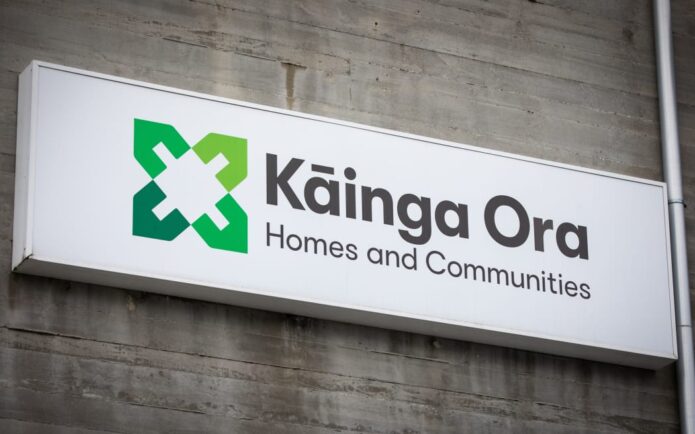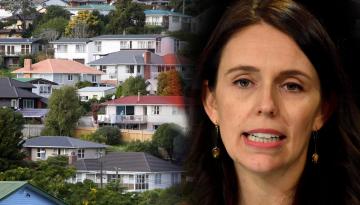PHOTO: NZ housing market. FILE
New Zealand’s home sales and prices are tumbling, providing a glimpse of what may unfold elsewhere.
New Zealand’s housing market has abruptly snapped from frenzied to floundering — and it may be a harbinger of what’s to come around the world.
Sales are plunging by double digits. Prices just fell the most in 13 years. And homes that would have previously sold in days are now sitting on the market for weeks.
It’s a change real estate consultant Alison Hawkes has watched first-hand. Just a few months ago, houses were selling for record prices as New Zealanders scrambled to buy property. Now, she spends much of her time managing the expectations of sellers, who are having trouble comprehending that they’re not going to find a buyer at the high prices seen in 2021.
“We have to tell vendors that the market has changed quite dramatically and quite quickly. It’s not always easy,” said Hawkes, who works for realtor Harcourts in Porirua, a city of around 56,000 people just north of the country’s capital, Wellington. “There are a lot of tears. A few months ago they were tears of happiness, now they’re tears when they realize their family home isn’t worth what they thought it was.”
New Zealand, a country of 5 million people in the South Pacific, was at the forefront of the pandemic property boom that saw prices around the globe soar, fueled by rock-bottom mortgage rates and government stimulus. Annual price gains in the nation were close to 30% in 2021, leading Bloomberg Economics to last month rank it as the world’s bubbliest real estate market.
In addition to low borrowing costs, New Zealand’s house-price growth was driven by a shortage of homes, a surge in immigration, and the upward trend in prices over the past decade, which cemented the perception that property investment is a safe bet.
Sales Slump
Now, New Zealand appears to be leading the pack downwards, with the median sale price down 8.1% in June from the peak in November last year to NZ$850,000 ($523,000), according to the Real Estate Institute of New Zealand.
Other data also point to a market that’s waning: Residential sales plummeted an annual 38.1% in June; homes are sitting on the market for longer, taking an average of six weeks to shift; and fewer houses are selling via auction — the preferred method during the heady days of 2021 when it was standing-room only in crowded auction rooms.
It’s a pattern that’s beginning to occur in other nations. In Canada, prices just had their biggest monthly decline in at least 17 years, home values are falling in Australia’s two biggest housing markets, and there are signs of the market cooling in the US and the UK.
To be sure, all markets are different, with unique drivers of supply and demand, but there are insights that can be drawn from New Zealand’s experience.
“The lesson for other countries is things can move quickly,” said Kelvin Davidson, chief economist at CoreLogic New Zealand. “House prices aren’t immune. It has been a reminder that they can go down as well as up.”
Rising interest rates are driving the shift as central banks globally try to head off the fastest inflation in decades. The Reserve Bank of New Zealand has been ahead of most others in taking aggressive action. It began raising interest rates in October last year and has now lifted the key rate by a total of 2.25 percentage points to 2.5%.
‘Canary in the Coal Mine’
This has had a chilling effect on the housing market, as higher borrowing costs mean people who were already stretching to buy property are finally reaching their limits, while banks are getting pickier about who they lend to.
“It’s not unreasonable to look to New Zealand as the canary in the coal mine,” said Sharon Zollner, ANZ Bank’s New Zealand chief economist. “Interest rates have been rising here for about a year now, which does put us well ahead of the pack. The themes we are seeing here are very similar to what’s happening in the US and Australia.”
Brad Olsen, principal economist at Infometrics, is closely watching the slump in house sales, as it signals prices will continue to fall.
“If we look at sales volumes at the moment, we’re going back more than a decade to see sales volumes as low as they are now outside of Covid lockdowns,” Olsen said. “That is quite a significant shift.”
Economists expect house prices will fall 10% to 15% this year and may eventually drop as much as 20% from their late 2021 peak.
For many homeowners, that’s a small decline compared with the massive gains in recent years, and economists say the country’s strong labor market is stopping prices from completely collapsing. The question is how low house values will go before they hit bottom.
“There’s uncertainty about how far it needs to fall before people view it as a buying opportunity,” Davidson said. “We’re not there yet.”
READ MORE VIA BLOOMBERG
MOST POPULAR
 New kiwi Property TV Show: RICH LISTERS
New kiwi Property TV Show: RICH LISTERS Ex real estate agent pleads not guilty to string of charges
Ex real estate agent pleads not guilty to string of charges ‘World’s hottest grandma’ NZ’s Gina Stewart forced out of home by paparazzi | WATCH
‘World’s hottest grandma’ NZ’s Gina Stewart forced out of home by paparazzi | WATCH How KFC car park deal brought down rising real estate star | AUSTRALIA
How KFC car park deal brought down rising real estate star | AUSTRALIA Possibly the perfect the Kiwi bach: The bach that JK built | WATCH
Possibly the perfect the Kiwi bach: The bach that JK built | WATCH NBR rich list 2022
NBR rich list 2022 Real estate agent’s message to home buyers
Real estate agent’s message to home buyers Abandoned land for sale
Abandoned land for sale Mortgage holders to be SLAMMED more: Another big OCR expected
Mortgage holders to be SLAMMED more: Another big OCR expected 10 ways real estate agents can stay focused in a changing market
10 ways real estate agents can stay focused in a changing market
















